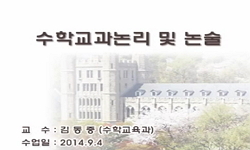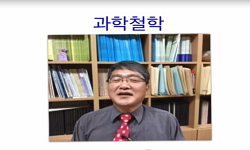The purpose of this study was to examine the scientifically gifted middle school students’ cognitive developmental levels, awareness and cognitive structures about scientific inquiry process. Twentyone cientifically gifted middle school students wer...
http://chineseinput.net/에서 pinyin(병음)방식으로 중국어를 변환할 수 있습니다.
변환된 중국어를 복사하여 사용하시면 됩니다.
- 中文 을 입력하시려면 zhongwen을 입력하시고 space를누르시면됩니다.
- 北京 을 입력하시려면 beijing을 입력하시고 space를 누르시면 됩니다.

중학교 과학영재 학생의 탐구과정에 대한 인지구조 = Scientifically Gifted Middle School Students` Cognitive Structures about Scientific Inquiry Process
한글로보기https://www.riss.kr/link?id=A100425365
- 저자
- 발행기관
- 학술지명
- 권호사항
-
발행연도
2015
-
작성언어
Korean
- 주제어
-
등재정보
KCI등재
-
자료형태
학술저널
- 발행기관 URL
-
수록면
37-49(13쪽)
-
KCI 피인용횟수
4
- DOI식별코드
- 제공처
-
0
상세조회 -
0
다운로드
부가정보
다국어 초록 (Multilingual Abstract)
The purpose of this study was to examine the scientifically gifted middle school students’ cognitive developmental levels, awareness and cognitive structures about scientific inquiry process. Twentyone cientifically gifted middle school students were given the Group Assessment of Logical Thinking test and the questionnaire which asked their awareness about 33 basic concepts of scientific inquiry process. To examine their cognitive structures, they were given those concepts and required to organize their own concept maps about scientific inquiry process. Results showed that three students were at the transitional period and 18 students were in the formal operational stage. For the concepts of tentative answer, independent variable, dependent variable, experimental group, control group, and hypothesis testing, most students answered that they had not heard about those concepts before or that they scarcely knew about them that they had heard about. Analysis of students’ concept maps showed that the students could not make propositions with unfamiliar concepts such as independent variables, dependent variables, control variables, hypothesis rejection and hypothesis support. Even worse, they made wrong propositions with familiar concepts such as hypothesis, prediction, and data organization. They did not know the difference between hypothesis and prediction or the relationship between inquiry process and data organization and interpretation.
참고문헌 (Reference)
1 신현화, "초등학교 과학과 자유탐구 활동에서 교사와 학생이 겪는 어려움 분석" 한국초등과학교육학회 29 (29): 262-276, 2010
2 이명애, "중학생의 생물 학습에서 개념 체계도 작성 능력 변화에 관한 연구" 한국생물교육학회 34 (34): 520-532, 2006
3 김수경, "중학생의 과학 탐구 능력 측정을 위한 평가 도구의 개발" 한국생물교육학회 35 (35): 163-177, 2007
4 김영민, "우리나라 중학생들의 논리적 사고 능력에 대한 메타 분석 - 1980 ~ 2000년까지의 학술지 게재 논문을 중심으로 -" 한국과학교육학회 29 (29): 437-449, 2009
5 소금현, "온라인 개념체계도 작성 프로그램의 개발" 한국생물교육학회 33 (33): 303-312, 2005
6 엄경화, "고등학생의 과학적 가설에 대한 인식과 가설 설정 능력 조사" 한국생물교육학회 40 (40): 357-366, 2012
7 Baird, W. E., "Validity considerations for research on integratedscience process skills and formal reasoning ability" 71 (71): 259-269, 1987
8 Novak, J. D., "The origins of the concept mapping tool and the continuing evolution of the tool" 5 (5): 175-184, 2006
9 Kipnis, M., "The inquiry laboratory as a source for development of metacognitive skills" 6 (6): 601-627, 2008
10 Hur, M., "The development of an instrument for evaluating inquiry activity in science curricula" 4 (4): 57-64, 1984
1 신현화, "초등학교 과학과 자유탐구 활동에서 교사와 학생이 겪는 어려움 분석" 한국초등과학교육학회 29 (29): 262-276, 2010
2 이명애, "중학생의 생물 학습에서 개념 체계도 작성 능력 변화에 관한 연구" 한국생물교육학회 34 (34): 520-532, 2006
3 김수경, "중학생의 과학 탐구 능력 측정을 위한 평가 도구의 개발" 한국생물교육학회 35 (35): 163-177, 2007
4 김영민, "우리나라 중학생들의 논리적 사고 능력에 대한 메타 분석 - 1980 ~ 2000년까지의 학술지 게재 논문을 중심으로 -" 한국과학교육학회 29 (29): 437-449, 2009
5 소금현, "온라인 개념체계도 작성 프로그램의 개발" 한국생물교육학회 33 (33): 303-312, 2005
6 엄경화, "고등학생의 과학적 가설에 대한 인식과 가설 설정 능력 조사" 한국생물교육학회 40 (40): 357-366, 2012
7 Baird, W. E., "Validity considerations for research on integratedscience process skills and formal reasoning ability" 71 (71): 259-269, 1987
8 Novak, J. D., "The origins of the concept mapping tool and the continuing evolution of the tool" 5 (5): 175-184, 2006
9 Kipnis, M., "The inquiry laboratory as a source for development of metacognitive skills" 6 (6): 601-627, 2008
10 Hur, M., "The development of an instrument for evaluating inquiry activity in science curricula" 4 (4): 57-64, 1984
11 Roadrangka, V., "The construction of a group assessment of logical thinking (GALT)" 58-, 1983
12 Wallace, J. D., "The concept map as a research tool : Exploring conceptual change in biology" 27 (27): 1033-1052, 1990
13 Kang, S., "Teaching strategy development of secondary school chemistry based on the cognitive levels of students and the cognitive demands of learning contents" 43 (43): 578-588, 1999
14 American Association for the Advancement of Science., "Science as A Process Approach(SAPA II)" Delta Education, Inc 1990
15 Ministry of Education, Science and Technology, "Science Curriculum for Middle School Students" 2009
16 Lim, C., "Relationships between Piagetian cognitive modes and integrated science process skills for high school students" 11 (11): 23-30, 1991
17 Ismail, Z. H., "Relationship between science process skills and logical thinking abilities of Malaysian students" 24 (24): 67-77, 2001
18 Yeom, H., "Middle school students’ awareness of scientific hypothesis and ability to formulate hypothesis" Seoul National University 2012
19 White, B. Y., "Inquiry, modeling, and metacognition : Making science accessible to all students" 16 (16): 3-118, 1998
20 Kinchin, I. M., "How a qualitative approach to concept map analysis can be used to aid learning by illustrating patterns of conceptual development" 42 (42): 43-57, 2000
21 Klopfer, L. E., "Handbook on Formative and Summative Evaluation of Student Learning" Mc Graw Hill 1971
22 Kim, J., "Grade 7th pupils’ideas about identification and control of variables in inquiry problems" 19 (19): 674-683, 1999
23 Burns, J. C., "Development of an integrated science process skills test : TIPS II" 22 : 169-177, 1985
24 Choi, B. S., "A study on the relationship between the level of inquiry ability in written test and the process skills shown in the experiments" 20 (20): 218-227, 1993
25 Woo, J., "A longitudinal trend analysis of science process skills" 19 (19): 173-184, 1999
동일학술지(권/호) 다른 논문
-
2007 개정 교육과정에 따른 초등학교 과학 교과서의 탐구과정 내용 분석과 학생들의 탐구과정에 대한 인식 및 탐구 사고력 조사
- 韓國生物敎育學會
- 김민희 ( Min Hee Kim )
- 2015
- KCI등재
-
예비 생물교사들의 생명윤리 논쟁거리에 대한 논증 활동의 효과
- 韓國生物敎育學會
- 김선영 ( Sun Young Kim )
- 2015
- KCI등재
-
탐구의 개방수준과 지식의 추상수준에 따른 학생들의 지식 구성과 과학적 논변활동에 대한 이해
- 韓國生物敎育學會
- 이영미 ( Young Mi Lee )
- 2015
- KCI등재
-
초등학생의 뇌활용 선호유형과 과학 학습자료의 외적 표상 양식 사이의 관계
- 韓國生物敎育學會
- 이민경 ( Min Kyung Yi )
- 2015
- KCI등재
분석정보
인용정보 인용지수 설명보기
학술지 이력
| 연월일 | 이력구분 | 이력상세 | 등재구분 |
|---|---|---|---|
| 2027 | 평가예정 | 재인증평가 신청대상 (재인증) | |
| 2021-01-01 | 평가 | 등재학술지 유지 (재인증) |  |
| 2018-01-01 | 평가 | 등재학술지 유지 (등재유지) |  |
| 2015-01-01 | 평가 | 등재학술지 유지 (등재유지) |  |
| 2014-09-02 | 학회명변경 | 영문명 : 미등록 -> The Korean Society of Biology Education |  |
| 2012-03-27 | 학술지명변경 | 한글명 : 한국생물교육학회지 -> 생물교육외국어명 : THE KOREAN JOURNAL OF BIOLOGY EDUCATION -> BIOLOGY EDUCATION |  |
| 2011-01-01 | 평가 | 등재학술지 유지 (등재유지) |  |
| 2009-01-01 | 평가 | 등재학술지 유지 (등재유지) |  |
| 2008-10-02 | 학술지명변경 | 외국어명 : THE KOREAN JOURNAL OF BIOLOGICAL EDUCATION -> THE KOREAN JOURNAL OF BIOLOGY EDUCATION |  |
| 2006-01-01 | 평가 | 등재학술지 선정 (등재후보2차) |  |
| 2005-01-01 | 평가 | 등재후보 1차 PASS (등재후보1차) |  |
| 2003-07-01 | 평가 | 등재후보학술지 선정 (신규평가) |  |
학술지 인용정보
| 기준연도 | WOS-KCI 통합IF(2년) | KCIF(2년) | KCIF(3년) |
|---|---|---|---|
| 2016 | 0.96 | 0.96 | 0.88 |
| KCIF(4년) | KCIF(5년) | 중심성지수(3년) | 즉시성지수 |
| 1.02 | 0.93 | 1.199 | 0.58 |





 KCI
KCI KISS
KISS



